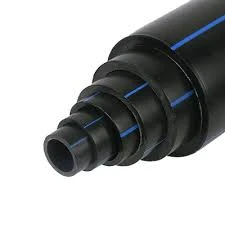dec . 29, 2024 01:39 Back to list
Understanding the Benefits and Applications of HDPE Pipe in Various Industries
Understanding HDPE Pipe A Comprehensive Overview
High-Density Polyethylene (HDPE) pipe is recognized as one of the most versatile and durable piping materials available in today’s market. Its unique properties make it suitable for a wide range of applications, from municipal water systems to industrial processes. This article explores the characteristics, benefits, applications, and installation practices associated with HDPE piping.
What is HDPE?
HDPE is a thermoplastic polymer made from petroleum. It is known for its high strength-to-density ratio, which makes it ideal for various applications that require durability and resistance to impact, chemicals, and environmental stress. HDPE pipes are manufactured through a process called extrusion, which shapes the material into long, continuous pipe sections.
Key Characteristics of HDPE Pipe
1. Durability HDPE pipes are resistant to corrosion, rust, and chemical leaching. Unlike traditional materials such as steel or PVC, HDPE is not prone to environmental degradation and can withstand harsh conditions, making it suitable for underground installations.
2. Flexibility The flexibility of HDPE allows it to bend and curve around obstacles, reducing the number of joints and potential failure points. This characteristic is particularly useful in applications where ground movement or shifting is a concern.
3. Lightweight Compared to metal pipes, HDPE pipes are significantly lighter, which makes them easier to handle and install. The reduced weight can lead to lower transportation costs and simplified installation procedures.
4. Cost-Effectiveness Although the initial cost of HDPE pipe may be higher than some other materials, its longevity and minimal maintenance requirements contribute to lower lifetime costs. The reduced need for repairs or replacements further enhances its economic viability.
Applications of HDPE Pipe
HDPE piping systems are employed in various sectors, including
hdpe pipe

- Water Distribution HDPE pipes are widely used in municipal water systems to transport drinking water due to their non-toxic nature and resistance to bacteria growth.
- Sewer and Drainage HDPE’s resistance to corrosion makes it an excellent choice for sewage and drainage applications, where it can handle wastewater without risk of deterioration.
- Mining The mining industry uses HDPE pipes for transporting slurry, a mixture of minerals, water, and other materials, as the pipe can withstand abrasions and harsh chemicals.
- Irrigation Systems In agriculture, HDPE pipes are utilized for irrigation systems thanks to their flexibility and ability to withstand high pressures.
- Industrial Applications HDPE pipes are used in various industrial applications, including chemical processing and gas distribution, where chemical resistance and durability are essential.
Installation Practices
Installing HDPE pipe requires specialized techniques to ensure a successful outcome. HDPE can be joined using heat fusion, electrofusion, or mechanical fittings. Heat fusion involves melting the pipe ends and joining them together, creating a strong, continuous bond. This method is preferred in many applications due to its reliability.
Proper trenching and backfilling are also essential during installation. The trench should allow for sufficient pipe bedding and protection from rocks or debris that could damage the pipe. Additionally, proper alignment and support must be maintained throughout the installation process to prevent sagging or deformation.
Conclusion
HDPE pipe is revolutionizing how we think about piping solutions. Its combination of strength, flexibility, and resistance to environmental factors makes it an ideal choice for numerous applications across various industries. As technology advances, the use of HDPE will likely expand, presenting new opportunities to improve infrastructure while ensuring sustainability and efficiency in our water and resource management systems. Understanding the benefits and best practices of HDPE piping can help stakeholders make informed decisions about their plumbing and industrial needs.
-
Premium HDPE Water Supply Pipes: Durable & Leak-Proof
NewsAug.03,2025
-
Premium PVC-M Water Supply Pipe - Durable & Efficient
NewsAug.02,2025
-
Premium PP Welding Rod: GPT-4 Turbo Enhanced
NewsAug.01,2025
-
HDPE Drainage & Irrigation Pipe - Durable, Efficient Solutions
NewsAug.01,2025
-
Premium PVC Transparent Pipe: Durable & Clear Solutions
NewsJul.31,2025
-
High-Quality UPVC Electrical Pipe for Safe Wiring Solutions
NewsJul.30,2025

